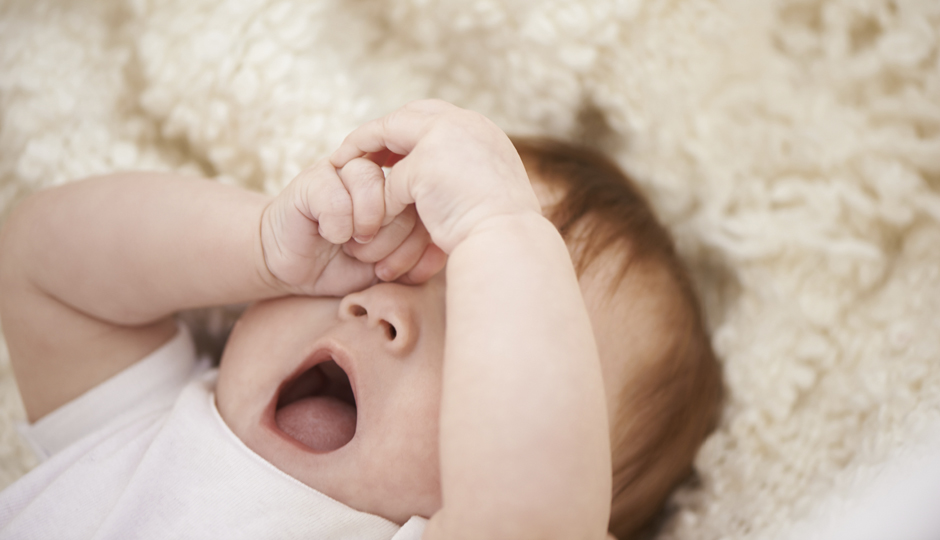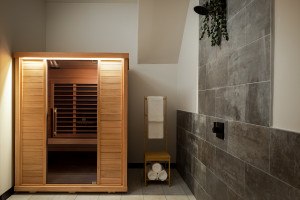Sleep Week: 10 Common Sleep Myths Put to Bed — Once and For All
It's time you knew the truth: Everything you think you know about sleep is wrong.
It’s Be Well Philly Sleep Week! All week long, we’re celebrating sleep and all the wonderful things good quality shuteye does for your body. We reached out to Philly’s top sleep experts to answer all your sleep questions in one fell swoop. Check back this week for more installments of our ultimate sleep FAQ. And to see them all in one place, pick up a copy of Philadelphia magazine’s May issue, on newsstands now.
SLEEP MYTH #1: A warm glass of milk before bed will help you sleep.
The theory here hinges on tryptophan—yup, the same sleep-inducing amino acid found in turkey that many believe makes them nod off after a Thanksgiving feast. Although tryptophan is indeed found in protein-rich foods like milk, turkey and even chicken, a 2003 study out of MIT found that the other amino acids present in them actually decrease the ability of tryptophan to reach your brain. And without entering your brain, good ol’ tryptophan can’t work its sleepy-time magic. So while drinking warm milk might be relaxing, the milk itself isn’t going to help you fall asleep faster.
SLEEP MYTH #2: Once a baby is sleep-trained, that’s that.
“We all sleep in cycles that are woven together in patterns,” says Andrea Elovson, a Wyndmoor-based child sleep coach. Between sleep cycles are short phases, called partial arousals, during which we become wakeful. Adults transition seamlessly from one sleep cycle to the next; babies aren’t so good at this, which is why many of them have to be taught how to put themselves back to sleep. But once a baby learns, that’s not the end of the line: “Brain development, travel, visitors, growth spurts, teething—these things will send your kid’s sleep into a spiral,” explains Elovson. Parents may need to re-teach their kids how to get over the arousals anytime their sleep gets thrown out of whack.
SLEEP MYTH #3: Hitting the snooze button three times before actually getting out of bed is a smart way to wake up.
“Anything that wakes you up before you have to get out of bed is a bad idea,” says Penn’s Richard Schwab. Think of it this way: You’re robbing yourself of precious minutes that could be spent sleeping, meaning you’re disturbing your shut-eye for no good reason. And dozing from alarm to alarm is doing nothing to help you ease into your morning, says Schwab: “You’re much better off setting the alarm for the last possible second and knowing that you can’t snooze.”
SLEEP MYTH #4: The main reason people today aren’t getting enough sleep is the Internet.
Not true. David Dinges at Penn wanted to find out what people trade for sleep. His colleague, Mathias Basner, examined the government’s economic time surveys, in which thousands of people break down how they spend every minute of their days. The result? “Work is the number one reason people reduce their sleep,” says Dinges. “That’s true even at the billionaire level, where you couldn’t possibly spend all the money you have.” And it’s also true at the other end of the spectrum, where you have a day laborer who’s working two jobs to make money. “There’s no question that time is money,” Dinges says, “and that influences how people sleep.”
SLEEP MYTH #5: Yawning means you’re tired.
More likely, it means you’re hot. In 2014, researchers in Vienna took a deep dive into yawns and found that they seem to help regulate brain temperature and aren’t directly caused by how tired you are. In their study, the biggest predictor for yawning wasn’t the amount of sleep subjects got the night before, but rather temperature; a hotter room yielded yawns. Another reason you yawn? Because it really is contagious; about half of adults yawn after seeing someone else do so.
SLEEP MYTH #6: Sleep induced by sleeping pills is the same as natural sleep.
Some components are similar, says Sigrid Veasey of Penn, but research shows they’re not equivalent. In studies where patients were given sleeping pills, slept, and then completed learning tests, they didn’t show the same improvement as patients who slept without the pharmaceutical help.
MYTH #7: All coffee is created equal.
If you’re worried about your afternoon joe affecting your sleep, be smart about the brew you reach for. “There are a lot of variants associated with what you’re drinking when you’re talking about coffee,” Dinges says. One of the biggies: the amount of caffeine in the blend. “Most people think an espresso has all the caffeine in it, but really, you get a much larger dose from a breakfast blend.”
SLEEP MYTH #8: Only kids sleepwalk.
Not true. A 2012 study out of Stanford found that around 8.4 million U.S. adults are prone to sleepwalking. Researchers used data from a representative sample of 19,136 individuals from 15 states and found that 3.6 percent reported sleepwalking at least once in the previous year, with one percent saying they sleepwalk at least twice a month. This meant, the researchers wrote, “that sleepwalking is much more prevalent in adults than previously appreciated.”
SLEEP MYTH #9: If you can’t sleep, do something active, to get tired.
Wrong again. “If you wake up in the night and have trouble going back to sleep,” says Donald M. Sesso of Chestnut Hill Hospital’s sleep med department, “go into a darkened, quiet room and read a book. Don’t make a meal or go on the computer. Don’t do stimulating things.”
SLEEP MYTH #10: Taking a warm shower or bath right before bed will help you fall asleep.
One of your body’s signals that it’s time for sleep is a drop in body temperature, so taking a warm shower or bath right before bed is actually a bad idea. Same goes for bathing your kid before bed. If you can stand it, you’re better off taking a cold shower before hitting the hay. Or, if a hot shower is a must (we don’t blame you), take it at least 90 minutes before bedtime, to let your body temperature come back down.
Like what you’re reading? Stay in touch with Be Well Philly — here’s how:
- Like Be Well Philly on Facebook
- Follow Be Well Philly on Twitter
- Follow Be Well Philly on Pinterest
- Get the Be Well Philly Newsletter



